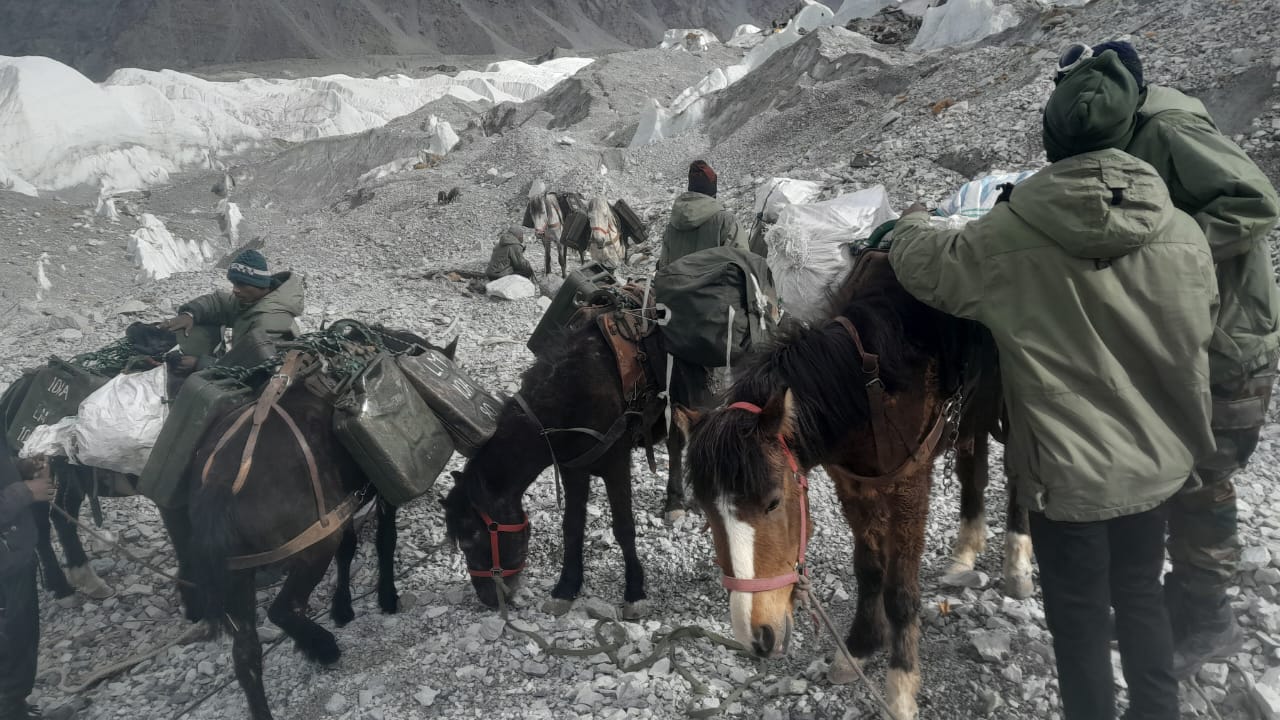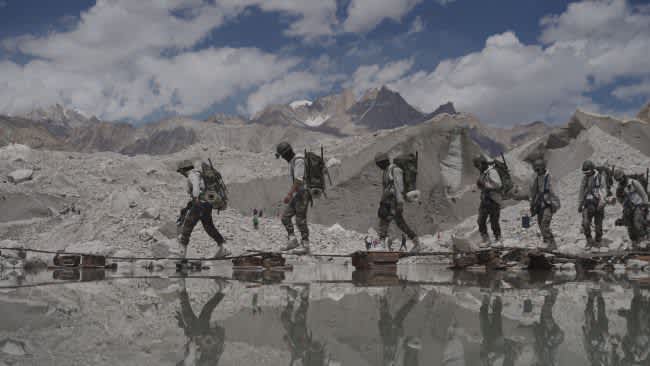New Delhi: Having recently returned from the Siachen Glacier, I am deeply moved by the Indian Army’s extraordinary commitment to environmental stewardship in one of the most challenging climates on earth. The Siachen Glacier, often perceived as a harsh, unyielding landscape, reveals a side that speaks volumes about sustainability and innovation.
In an era where glaciers worldwide are rapidly depleting, the Indian Army stands as a formidable guardian of the Siachen Glacier, commanding a unique strategic position atop the icy heights. Their sheer physical presence in this harsh terrain is crucial for maintaining security against adversaries. Beyond the arduous deployment, the Army is also tasked with maintaining and upkeeping sophisticated weapons and security systems essential for safeguarding national sovereignty. Against this backdrop of extreme conditions and demanding responsibilities, the commitment to effective waste management is both challenging and crucial. The Army’s focused efforts reflect its dedication to managing the glacier’s environment while ensuring its strategic defence and operational readiness.
As part of the Siachen Glacier Trek organized by Oxbow Explore in collaboration with the Indian Army, I count myself among the fortunate few to have set foot on the majestic Siachen Glacier. Upon arriving at the base camp, I was immediately struck by the meticulous efforts being made to manage waste in an environment where traditional decomposition processes are virtually non-existent. The Indian Army has implemented impressive waste management systems that are nothing short of pioneering. Kitchen waste, including scraps and food remnants, is not discarded thoughtlessly. Instead, it is meticulously processed into compost, which is then used to cultivate vegetables in greenhouses. These greenhouses, brimming with lush greens, stand as verdant oases amidst the glacier’s stark, cold desert.
Walking through the base camp, one cannot help but notice the palpable dedication to maintaining the environment. Plantation drives are a common sight, with small saplings being carefully nurtured to gradually transform the camp into a greener, more vibrant space. This initiative underscores the soldiers’ deep respect for nature and their commitment to preserving even the smallest blades of grass.
The ingenuity extends beyond waste management to include innovative recycling practices. Plastic waste is meticulously segregated and sent to partner firms, where it is converted into useful products. One standout creation is the “Modi Jacket,” a high-quality garment crafted from recycled materials, symbolizing the blend of eco-friendliness and practicality.

As I progressed on my trek from base camp to Camp 1 and then onward to Camp 2 and Camp 3, I was deeply impressed by the stringent cleanliness practices in place to protect the fragile Siachen Glacier ecosystem. The Indian Army’s commitment to environmental conservation was evident in their meticulous waste management protocols. Each unit returning from deployment is required to carry not only its trash back to the base camp but also an additional 10 per cent of the accumulated old waste. This straightforward yet effective strategy has significantly contributed to the removal of historical metal and non-biodegradable trash, ensuring a cleaner and more sustainable environment. Witnessing these practices firsthand, it was clear that the Army’s dedication to maintaining the delicate ecosystem of the Siachen glacier is steadfast, and their resolve in upholding these standards is truly commendable.
Moreover, the revival of the Zanskar ponies, an endangered but formidable native breed of Ladakh who can carry a 60 kg load at high altitude, exemplifies another facet of the Army’s commitment to sustainability. These ponies, essential for transporting logistics, supplies, and even waste, are crucial in maintaining the camp’s functionality while preserving a piece of local heritage.
Interacting with the soldiers and officers, I was struck by their profound dedication to preserving their environment. Their innovative approaches and heartfelt stewardship ensure that even in such an extreme location, there is a concerted effort to mitigate human impact and enhance the quality of life.
My visit to Siachen was a thought-provoking reminder that environmental responsibility is not limited by geography or conditions. The Indian Army’s initiatives on the glacier are a powerful attestation to the fact that with creativity, commitment, and respect for nature, even the harshest environments can be managed sustainably.
~Anjali Sonwani – Seasoned High Altitude Trekker: Siachen Glacier Trek





